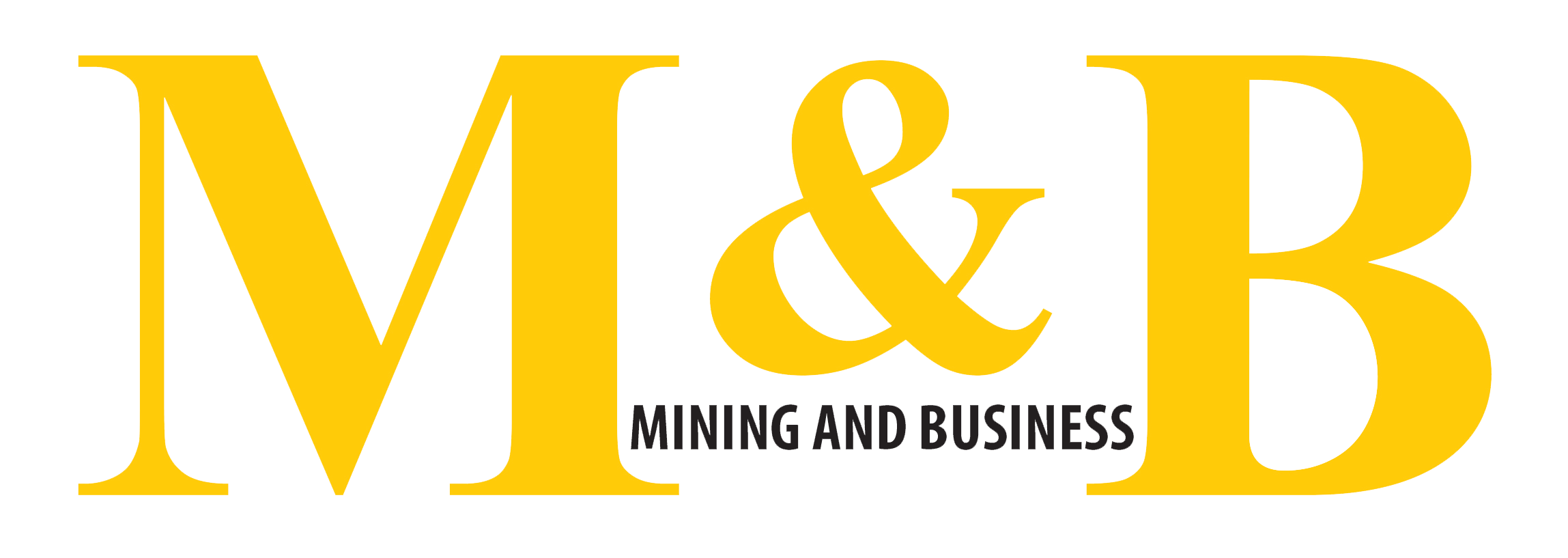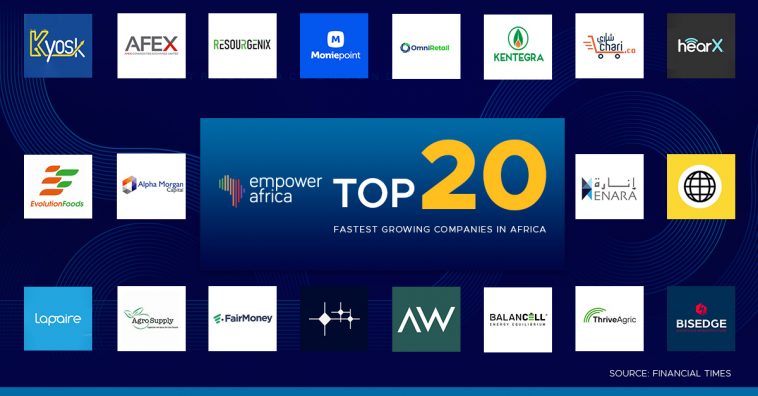African companies are struggling to recover from the Covid pandemic. The list of the top 125 companies, with none from the DRC, shows those that have performed well in troubled times.
The third year of the now expanded ranking of Africa’s fastest-growing companies comes at a time when many economies are still struggling to recover from the Covid-19 pandemic.
Africa is falling behind
According to the IMF, Africa’s overall economic growth in 2023 was 3.2%, less than that of Asia, which grew by almost 5%. Given the continent’s rapid demographic expansion, this underperformance is even more marked in terms of per capita growth. Instead of closing the gap with wealthier regions, Africa is falling behind.
“It’s very difficult to sell an El Dorado story in Africa,” says Stéphane Bacquaert, managing partner at Adenia, a private equity firm specialising in Africa. However, according to FT-Statista, there are companies that have managed to grow even in difficult times.
According to Magdi Amin, co-founder and managing partner of venture capital firm African Renaissance Partners, the key is to provide answers, often by applying technology, to “problems inherited from the past”. These include inadequate electricity grids, lack of access to banking services and high transaction costs. “Frankly, governments and other providers have failed to deliver the services that the growing and rapidly urbanising population wants,” says Amin.
According to Abebe Selassie, Director of the IMF’s Africa Department, although the macroeconomic environment remains poor and poverty levels have increased, many businesses have forged ahead. Much of the private sector has shown incredible resilience.
Once again, it was a Nigerian company – this time Omniretail – that came out on top. As in previous years, the winning company is a B2B e-commerce platform that helps small retailers, kiosk owners and shopkeepers digitise their business.
Mauritius-based Kyosk Digital (runner-up), which describes its business as “empowering traditional African retailers, farmers and their customers through a digital and data-driven distribution platform”, plays a similar role. Founded in Nairobi, it has since expanded into Tanzania, Uganda and Nigeria.
South Africa has 42 companies in the top 125, followed by Nigeria with 25. Kenya comes third with 12 companies, tied with Morocco. In last year’s list of 100, Morocco had only three winners.
African Renaissance Partners is betting that as Africa’s barely ten-year-old venture capital industry matures, the successes of start-ups will extend beyond the major hubs of Egypt, Nigeria, Kenya and South Africa. It is investing seed capital in companies in Ethiopia, Rwanda, Tanzania and Uganda. Mr Amin predicts that, in five years’ time, the FT’s rankings will include many more companies from these and other ‘non-hub’ countries.
However, there’s no hiding the fact that 2023 was “a tough year for the tech ecosystem”, according to Partech, an investment platform for technology and digital companies. Its annual survey of venture capital investment in Africa revealed a 46% drop compared to 2022, to $3.5 billion, raised in 547 deals, which is also less than in recent years.
There are signs that the market has bottomed out. Since November, venture capital firms have raised more than $650 million in funding for Africa, including $205 million for Norskenn22, an Africa-focused technology growth fund. Low-asset companies, particularly those leveraging AI, some of which are capable of providing solutions to global problems are on a roll. Such as HearX (ranked 10), a South African company that uses AI to diagnose and treat hearing problems and now sells its products in the US.
“African companies are not only solving local or regional problems, but also global ones,” observes Aniko Szigetvari, founding partner of Atlantica Ventures, a pan-African venture capital fund. “If you find a solution in Africa, you can apply it to other markets.” Szigetvari cites Lelapa AI, which transcribes chatbot messages into African languages such as isiZulu and Sesotho. Another company in this year’s ranking (21) is Tymebank, a neobank that is extending its model developed in South Africa to the Philippines, Vietnam and Singapore.
Nevertheless, beyond the gloomy macroeconomic environment, companies are coming up against other major obstacles. Companies frequently mention currency and regulator risk, as well as negative investor sentiment due to political and security upheavals, including in the coup-prone Sahel.
But there are signs that local pension fund investment is finally finding its way into young, fast-growing companies, with Ghana, Kenya and South Africa leading the way.
The method
In 2024, Statista compiled a list of the 125 fastest-growing African companies, ranked according to their compound annual revenue growth (CAGR) between 2019 and 2022. To establish this ranking, thousands of companies were identified via databases and other public sources, then invited to participate by post and email. The application phase, which ran from 9 October 2023 to 29 February 2024, required certification of revenue figures by an executive of the company.
Criteria for inclusion on the list
To be included on the list of fastest-growing African companies in 2024, a company had to meet several criteria: have generated at least USD 100,000 in 2019 and USD 1.5 million in 2022, be independent, be headquartered in Africa, and show predominantly organic revenue growth between 2019 and 2022. Only companies meeting these criteria were included, with a minimum compound annual growth rate (CAGR) of 8.62%. This ranking is not exhaustive, as some companies have chosen not to disclose their figures.
Source David Pilling for The Financial Time

